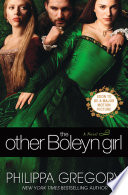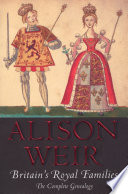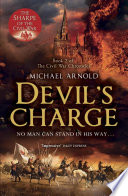Check out our guide with authors like Philippa Gregory; ideal for fans of historical fiction looking for their next favorite book!
Philippa Gregory fans love the author’s historically accurate fiction works, including The Other Boleyn Girl. The author has faced some controversy in recent years for her strong commitment to accuracy, as she’s brought to light some facts that scholars once disputed. Gregory believes in doing the work necessary to help readers feel fully immersed in the world of her characters, despite complaints from some historians.
If you’re a historical fiction fan who loves the writing style of authors who aren’t afraid to put in the hard work required for historical accuracy, you’ll want to pick up the latest from the authors in our list.
Must-Read Authors Like Philippa Gregory
For more fantasy recommendations, you might also enjoy exploring best fantasy authors, authors like Brandon Sanderson, authors like George R.R. Martin, or discover our comprehensive guide to best fantasy authors.
1. Alison Weir, 1951 -
Alison Weir is an author and historian known for her works of historical fiction and non-fiction that delve into the lives of royal English women. Weir gained notoriety in 1989 when she published her first work, Britain’s Royal Families. Her historical fiction works focus on several English queens. Her first historical fiction book, Innocent Traitor, chronicled the life of Lady Jane Grey. The author has stated that while she loves writing about the facts of history, she finds writing historical fiction liberating, as she can use facts alongside her creativity.
In an interview with Glow magazine, Weir stated, “Every book is a learning curve, and you must keep an open mind. I am sometimes asked to cut back on the historical facts in my novels, and there have been disagreements over whether they obstruct the narrative, but I do hold out for the history whenever I can.”
Weir’s dual expertise as both historian and novelist has made her particularly influential in 2025, as readers increasingly seek historical fiction that seamlessly blends entertainment with educational value and authentic historical detail.
“I steel myself to ignore his taunts and his coarse language. I no longer care what he says or does. It doesn’t matter anymore. I am detached, contained in my own private world where he cannot reach me. It is my last refuge.”
Alison Weir, Innocent Traitor
2. Margaret George, 1943 -
Margaret George is an American novelist who writes fictional biographies of historical figures. She’s known for several bestsellers, including The Autobiography of Henry VIII, Mary Queen of Scotland and the Isles, The Memoirs of Cleopatra, Mary, Called Magdelene, Elizabeth, and The Confessions of Young Nero. George is known for the historical accuracy of the factual aspects of her books, especially her detailed knowledge of medical history. The author has stated that she aims to create panoramic, detailed, and elegant books as she works to embody the style of filmmaker David Lean in her books.
George’s cinematic approach to historical fiction continues to influence contemporary writers in 2025, with her sweeping narratives serving as a model for authors seeking to bring historical figures to life with both authenticity and dramatic flair.
“It is only when our fate hangs in the balance, when our very life depends on something, that we see whether or not we trust that the rope to which we are clinging will support us. If we do not, then we let go of the ledge and swing on it with our full weight.”
Margaret George, The Memoirs of Cleopatra
3. Hilary Mantel, 1952 - 2022
Hilary Mantel was a Booker Prize historical fiction writer. She first rose to fame with her 1985 novel Every Day is Mother’s Day. She followed her initial success with twelve novels, many critically acclaimed. Her Booker Prize-winning novels include Wolf Hall and its sequel, Bring Up the Bodies. The novels follow Thomas Cromwell’s fictional life and how he rose to power in the court of Henry VIII. The author is also known for her memoir, Giving Up the Ghost. Mantel was sometimes questioned about her political views, as she identified as a socialist as a young adult and was a member of the Young Communist League.
Though Mantel passed away in 2022, her revolutionary approach to historical fiction—bringing psychological depth and literary sophistication to historical narratives—continues to influence writers and set the standard for literary historical fiction in 2025.
“The word ‘however’ is like an imp coiled beneath your chair. It induces ink to form words you have not yet seen, and lines to march across the page and overshoot the margin. There are no endings. If you think so you are deceived as to their nature. They are all beginnings. Here is one.”
Hilary Mantel, Bring Up the Bodies
4. Jean Plaidy (Eleanor Hibbert), 1906 - 1993
Jean Plaidy was the pen name of Eleanor Alice Hibbert. Plaidy was known for her historical romances and the different pen names she used for different genres. For example, she wrote under the name Philippa Carr when writing a novel about family issues and Victoria Holt when writing gothic romances. Plaidy received the Romance Writers of America Golden Treasure Award in 1989 for her contributions to romance writing.
At the start of her literary career in the 1930s, Plaidy wrote nine books, all of which were rejected by publishers. Her short stories were published in Ladies Home Journal, The Star, and others. Then, one day the fiction editor at the Daily Mail encouraged her to take up writing romantic fiction, and this is where it all began. Throughout her career, Plaidy published over 200 books that sold over 100 million copies worldwide.
Plaidy’s prolific output and accessible approach to historical fiction established the foundation for the genre’s popularity, with her influence still evident in contemporary historical romance and the multi-generational sagas that remain popular in 2025.
“Her fault had been in trying to keep it as tight as a mistress might. All a wife needed was a little more subtlety, and it had taken her two years of doubts and nightmares to realize this. Let him wander away from her, let him dally with others—it would but be to compare them with his incomparable queen.”
Jean Plaidy, Murder Most Royal
5. Sarah Dunant, 1950 -
Sarah Dunant is an English novelist and journalist. She didn’t begin writing until her late twenties, following time spent as a public broadcaster in London. Dunant has published thirteen novels and writes both historical fiction and contemporary thrillers. Across both genres, she’s known for excellent storytelling and exploring tough issues that affect many audiences. Dunant’s writing often focuses on women’s issues and women’s history. In 2000, the writer gained worldwide acclaim for her books on the Renaissance in Italy. She wrote a trilogy of books on the subject, including The Birth of Venus, In the Company of the Courtesan, and Sacred Hearts.
Dunant’s focus on women’s experiences in history has made her work particularly relevant in 2025, as readers increasingly seek historical fiction that centers female perspectives and explores how women navigated power, agency, and survival in patriarchal societies.
“Someone told me much later that you always know the people who are going to make a difference in your life, from the very first time you set eyes on them, even if you do not like them at all. And I had noticed him, as he had me. God help us.”
Sarah Dunant, The Birth of Venus
6. Sharon Kay Penman, 1945 - 2021
Sharon Kay Penman was an American novelist best known for her Plantagenet series and Welsh Princess trilogy. All of her novels and mysteries take place in Europe and are set during the Middle Ages. Several of her books hit the New York Times bestseller list. She started writing The Sunne in Splendour, which focused on King Richard III during the War of the Roses.
Penman wrote King Richard in a way that portrayed him as a misunderstood king. She stated that she became fascinated with the king and was hooked on writing historical fiction. Penman is known for her meticulous research, dedication to developing characters, and helping today’s readers relate to those who lived long ago.
Though Penman passed away in 2021, her detailed exploration of medieval English history and her sympathetic portrayals of controversial historical figures continue to influence how contemporary authors approach complex historical characters and periods.
“I’ll admit that my garden now grows hope in lavish profusion, leaving little room for anything else. I suppose it has squeezed out more practical plants like caution and common sense. Still, though, hope does not flourish in every garden, and I feel thankful it has taken root in mine.”
Sharon Kay Penman, The Reckoning
7. Tracy Chevalier, 1962 -
American-British historical fiction author Tracy Chevalier published The Virgin Blue, her first novel, in the UK in 1997. She published her second historical fiction novel, Girl with a Pearl Earring, in 1999. The book became an international hit, selling over five million copies worldwide. Chevalier’s novel was made into a feature film in 2003. The author contributes to world literature through her involvement in various organizations, including the UK’s Society of Authors, the UK’s Public Lending Right, and the Woodland Trust.
Chevalier’s success in adapting historical art and artifacts into compelling narratives has inspired a new generation of writers in 2025 who explore the intersection between visual arts and literature, using paintings and objects as springboards for historical storytelling.
“I heard voices outside our front door - a woman’s, bright as polished brass, and a man’s, low and dark like the wood of the table I was working on. They were the kind of voices we heard rarely in our house. I could hear rich carpets in their voices, books and pearls and fur.”
Tracy Chevalier, Girl with a Pearl Earring
8. C.W. Gortner, 1964 -
C.W. Gortner is a Spanish-American historical fiction author known for several works, including The Last Queen: A Novel, Mademoiselle Chanel: A Novel, and The First Actress: A Novel of Sarah Bernhardt. After earning his MFA in writing, emphasizing Renaissance studies, Gortner traveled extensively to research his books. He’s sold over 400,000 copies worldwide, and his twelfth novel, The American Adventuress, was recently published by HarperCollins. In addition to his writing, Gortner is also known for animal rights advocacy.
Gortner’s approach to biographical historical fiction, focusing on remarkable women who challenged societal conventions, has found particular resonance with contemporary readers seeking stories about female pioneers and rule-breakers throughout history.
“What we do not earn ourselves,” he said, “is never truly ours. It can always be taken away. But even if we lose everything we work for, the achievement is ours forever.”
C.W. Gortner, Mademoiselle Chanel
9. David Blixt, 1973 -
David Blixt is an American author and stage actor well-known for his historical fiction works. His 2017 novel, Her Majesty’s Will, was adapted into a play for Lifeline Theatre. The novel is a comedy that follows the fictional hijinks of William Shakespeare and Christopher Marlowe as they work together in an attempt to assassinate Queen Elizabeth. Blixt is heralded for his knowledge of Shakespeare and has written two books on the author, including Tomorrow & Tomorrow: Essays on Shakespeare’s Macbeth and Shakespeare’s Secrets: Romeo & Juliet.
Blixt’s combination of theatrical background and historical scholarship has made his work particularly appealing to readers interested in the intersection of drama and history, especially as interest in Shakespearean studies continues to evolve in 2025.
“Chaos comes in multitudinous forms. Events like fires, storms, or diseases might descend in a moment and create tumultus — a legal state recognized by the Senate, wherein normal procedures are suspended in favour of decisive action.”
David Blixt, Colossus: The Four Emperors
10. Gillian Bagwell
Gillian Bagwell writes historical fiction romance novels about what life might have been like in the 1500s and 1600s in England. She’s known for her intensely detailed writing that transports readers into the lives of her characters. Her 2012 novel, The King’s Mistress, received wide critical acclaim. In the story, Bagwell chronicled the story of Jane Lane. While Mistress is a fictional account of Lane’s life, she was a real part of history who helped King Charles II escape following an impossible battle, preserving the future of the British royal family.
Bagwell’s focus on lesser-known historical figures who played crucial roles in major events has inspired other authors to explore the untold stories of ordinary people who influenced extraordinary historical moments.
“What a groan had gone up from the crowd that day at the final, fatal sound of the executioner’s axes; what horror and black despair had filled their hearts as the bleeding head of the king was held aloft in triumph.”
Gillian Bagwell, The Darling Strumpet
11. Indu Sundaresan
Indu Sundaresan is an Indian-American historical fiction writer. Her first novel, The Twentieth Wife, won the Washington State Book Award in 2003. In the book, Sundaresan tells the story of Mehrunissa, a widow who becomes an empress. The Feast of Roses, Sundaresan’s second novel, continues the story of Mehrunissa, and the trilogy is completed with her third novel, Shadow Princess. Sundaresan is known worldwide for her historical fiction novels set in the Middle East, and her work has been translated into more than 23 languages.
Sundaresan’s exploration of Mughal India has opened doors for greater representation of non-European historical settings in the genre, inspiring more diverse voices and perspectives in historical fiction that continue to expand the field in 2025.
“Ghias, we must be careful not to teach the girls too much. How will they ever find husbands if they are too learned? The less they know, the less they will want of the outside world.”
Indu Sundaresan, The Twentieth Wife
12. Isabel Allende, 1942 -
Isabel Allende is often heralded as the world’s most widely-read Spanish-language author. Her work has been praised by many, and in 2010, she received the National Literature Prize in Chile. In 2014, she was awarded the Presidential Medal of Freedom by President Barack Obama. Allende melds historical events and pieces of her personal experiences in her books. She’s often classified as a magical realism author, as she uses aspects of age-old myths in her stories. Her most famous novels include The House of the Spirits and City of the Beasts.
Allende’s integration of magical realism with historical fiction has influenced a generation of writers who blend fantastical elements with historical narratives, creating more imaginative and culturally rich approaches to historical storytelling.
“She sowed in my mind the idea that reality is not only what we see on the surface; it has a magical dimension as well and, if we so desire, it is legitimate to enhance it and color it to make our journey through life less trying.”
Isabel Allende, Eva Luna
13. Vanora Bennett, 1962 -
Vanora Bennett is a British author and travel writer. Her first book, Crying Wolf: The Return of War to Chechnya, was a non-fiction work covering the Russian-Chechen War and was published in 1998. She then wrote The Taste of Dreams: An Obsession with Russia and Caviar, a travel book about Russia, in 2003. After completing these non-fiction works, Bennett turned to writing historical fiction. Her first historical fiction novel, Portrait of an Unknown Woman, was published in 2007 and made the shortlist for the Authors’ Club First Novel Award. The book tells the story of a German Protestant artist and an English Catholic statesman.
Bennett’s background in journalism and travel writing brings an authenticity and observational depth to her historical fiction that appeals to readers seeking well-researched, nuanced portrayals of different cultures and political dynamics.
“Alice must already have known, even back then, when she first saw Fortune, when she was, what, nine or ten, that she would try and hitch a lift on the wheel, too, as soon as she possibly could. She must already have been thinking out how. But she couldn’t have guessed how soon her chance would come.”
Vanora Bennett, The People’s Queen
14. Elizabeth Chadwick, 1957 -
Elizabeth Chadwick was fifteen when she realized she wanted to write historical fiction as a career. After going through several rejections from publishers, she wrote The Wild Hunt, which was picked up for publication by the Penguin Group. The Wild Hunt won a Betty Trask Award, and Chadwick’s work continued to receive wide critical acclaim. Today, the author is recognized as one of Britain’s great historical fiction novelists. She’s known for her deep dives into medieval history, specifically on the Bigod and Marshal families as she follows magnate William Marshal in two of her novels, The Greatest Knight and The Scarlet Lion.
Chadwick’s dedication to medieval research and her focus on lesser-known but historically significant figures has established her as a master of the period, influencing how contemporary authors approach medieval settings with both accuracy and accessibility.
“There was a time when I thought I could change everything. I have learned the hard way that we only have so much strength: better to use it for fights where we stand a chance of winning.”
Elizabeth Chadwick, The Winter Crown





